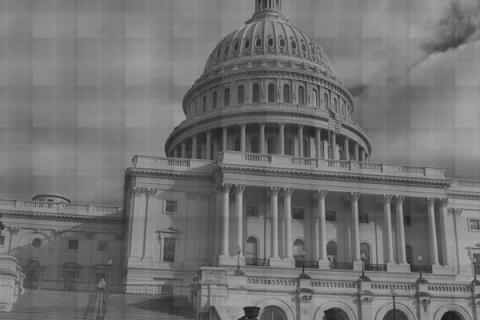"The revolution is alive and well." That's what The Politico reporter Andy Barr wrote this Tuesday in his article summarizing the extraordinary fundraising feat Congressman Ron Paul's supporters pulled off the day before, raising $730,000 online in just 24 hours for Paul's Liberty PAC. The single day fundraising effort- called a "money bomb" by the Internet activists who pioneered it- echoed the days of Ron Paul's presidential bid, during which followers raised a staggering $4.3 million in one day on November 5th, 2007 and then another $6 million on December 16th, 2007 -the anniversary of the Boston Tea Party.
Dubbed "The President's Day Money Bomb," the fundraising effort was a clear show of force and a test to see if another presidential bid would be financially viable for the congressman and doctor from Texas. The Paul camp's rhetoric leading up to and following the money bomb this Monday confirms CAIVN's report earlier this month that all signs indicate Ron Paul will make another bid for president in 2012. In a Monday morning email urging supporters to donate to Liberty PAC for the money bomb, Ron Paul wrote:
"It is no secret that I am weighing my personal political options for 2012, and that I am relying on Liberty PAC to fund my efforts while I make important decisions."
Liberty PAC promoted the money bomb by posting a YouTube video to Ron Paul's Facebook page which said:
"Today is the moneybomb for Ron Paul's presidential exploratory committee... If we show him enough support, he will announce his official candidacy for 2012."
Then on Wednesday, Paul emailed supporters again to say:
"Our success has allowed me to confirm a trip to New Hampshire and begin planning several more to other key political states."
He also urged them to continue blowing up Liberty PAC's ticker until it reached the million dollar mark. As of this writing, the ticker is well on its way toward $800,000 in donations.
Meanwhile, there are other indicators that the Ron Paul / Tea Party wing of the Republican Party is more robust than ever. Newly-elected Senator Rand Paul released his first book, The Tea Party Goes to Washington, which is now on Amazon.com's Bestseller list after a three day "book bomb" this week during which supporters purchased the book en masse from the 22nd through the 24th (As an aside to San Diego residents: Rand Paul will actually be in California today signing copies of his new book at Warwick's in La Jolla starting at 3 pm).
Assisted by South Carolina radio host and columnist Jack Hunter in drafting the book, Rand Paul makes bold assessments and policy prescriptions for the country, earning the praise of The American Conservative magazine, in which columnist Tom Woods wrote:
"Senator Paul is willing to stake out positions—on the Patriot Act, the U.S. Constitution, the federal budget, Austrian economics, and so on—that are not exactly standard fare for a man in his position."
While promoting the book, Senator Paul was interviewed by George Stephanopoulos who tested just how firm the Senator is in his principles, pointing out that Kentucky gets $1.51 back from Washington for every dollar they pay in federal taxes. Would the Senator "bring that money down?" Rand Paul said he'd have to bring "all the numbers down" because we have no other choice.
If the Kentucky Senator (who also says "I'm not afraid not to be elected") can stake out this position on federal spending levels, shouldn't delegates from California, the nation's biggest donor state, be even more eager to control spending levels so that California taxpayers aren't paying for Kentucky's roads? That would leave more money in the state for its expensive and ever-growing education and prison budgets among other costs.
If Ron Paul had his way, things would be different. Every state would have more money leftover for its residents to save or spend on their household expenses, and more money leftover for the state to spend on programs closer to home. Maybe that's why he raised so much money in just 24 hours this past President's Day.

